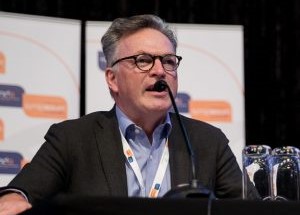
Thank you to all those who submitted an abstract to the 36th International Symposium on ALS/MND.
Next Steps: Prepare Presentation slides using presenter guidelines
All authors will have been emailed information about their oral talk, including the session they will be presenting and the timings.
At the Event
On arrival at the venue, we request that all oral speakers upload their presentation at the speakers' room as soon as possible, but at least 2 hours in advance of your session. This will leave enough time for your presentation to be loaded onto the AV system and ensure your presentation will be ready for you during your slot. At registration, please find the Speaker's desk, where you will receive additional information on how to upload your presentation.
Time allocation
The time allocation for Oral Communications ranges from 10 to 40 minutes. The timing of your talk is included in your acceptance email and can be found in the programme.
The time allocation of your presentation is inclusive of time for questions. Please allow 4-5 minutes for these at the end of your talk. As a general rule, we recommend to allow 1 minute per slide, for example, if you have been given a 20 minute time slot, you should aim to use ~15 slides in total.
Speakers who over-run their allocated slot will have their presentations cut short by the Session Chair.
Content and technical guidelines
- You must provide a declaration of any conflicts of interest as a second slide.
- We ask that you use widescreen layout (16:9; in PowerPoint, this can be changed in the 'Design' tab -> Slide Size)
- Please see the Presenter Instructions Manual for tips when making your presentation slides.
- If you don’t wish the audience to take pictures/recordings of your slides, please let the audience know at the start of your talk.
- Please be mindful that there may be people in the audience who are not experts in your specific area of research, but are interested in this field of investigation and will want to take away an understanding of its relevance to MND research in a broader sense.
Live Streaming/Recordings
While we are excited to continue hosting the Symposium as a hybrid event to allow people unable to attend in-person an opportunity to participate in the event. For this reason we will be recording all sessions and these will be available after the event on the Virtual Platform until 4 March 2026. We will also be live-streaming a select number of sessions to our virtual delegates. The sessions chosen for live-streaming will be highlighted in the final programme closer to the Symposium.
Social media
We actively encourage the use of social media during the Symposium.
We are making presenters aware prior to the meeting that you have the right to ask delegates not to disseminate your research (images of slides/quotes etc.). If you do not want your presentation to be discussed in this way, please state this clearly at the beginning of your presentation, or use a 'do not distribute' image on the slides you do not want the audience to take pictures of.
Session chairs will also be made aware and will remind presenters during the meeting.
Share your experience
Remember to stay up to date with the Symposium via Twitter/X and bluesky, using #alsmndsymp, and the Symposium website.
We will be reporting from the event via social media and on our blog. We are keen to provide coverage to non-scientists, if you are interested in translating your talk into lay language through a video interview please get in touch with a member of event staff or email symposium@mndassociation.org.